In this episode of The Mag Life Podcast, Daniel visits with Ed Calderon, a former Mexican police agent with extensive experience and understanding of border control issues, drug cartels, and the complexities that exist between the US and Mexico.
Born in Tijuana, Mexico in the 80s, Ed decided to go into police work when he was 21. For over a decade he worked in counter-narcotics, investigation of organized crime, executive protection, and public safety along the northern border of Mexico. Later, he came to the US and is now recognized as one of the world’s most preeminent researchers and personal security trainers, offering security consulting, seminars, and private training in anti-abduction, escape and evasion, unarmed combat, unconventional edged-weapon work, and region-specific executive protection.
Host: Daniel Shaw
Guest: Ed Calderon
Introduction/Timeline: Eric Huh
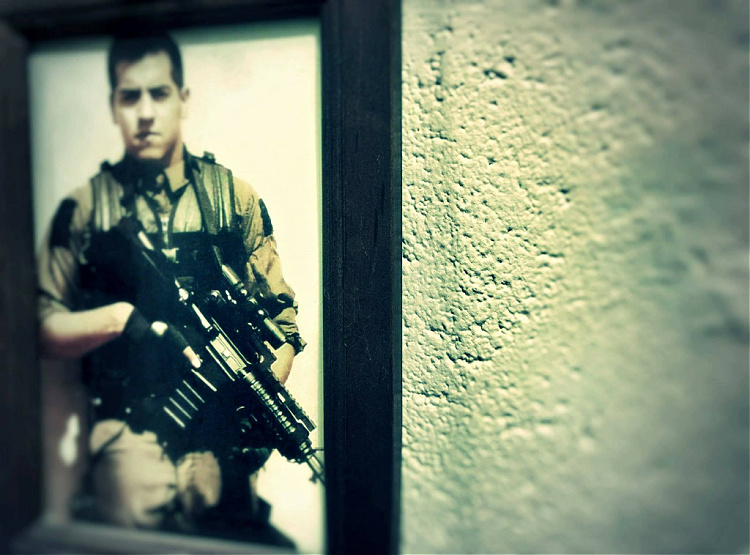
Ed Calderon is recognized as one of the world’s preeminent researchers and trainers in the field of personal security.02:22 Imparting Valuable Skills to Others
Daniel inquiries about the life-saving skills Ed learned on the job while he was active in Latin America and Mexico. Ed’s extensive background in counter-narcotics work has covered escape and evasion—namely, how to:
- escape from handcuffs,
- manufacture tools for survival,
- be armed in non-permissive environments,
- look for early warning signs of an ambush in an urban setting, and
- understand the social norms in Mexico.
He has brought his in-depth, hands-on experience in the undercover narcotics world to other law enforcement agencies in the United States (FBI, Secret Service, among others) so that they may be better equipped for threats across the border.
06:05 What scares you?
Daniel asks Ed what genuinely scares him. Ed replies that his one fear is to not live without a purpose. Having faced a great many near-death experiences, Ed has become numb to the idea of physical danger. Rather, it is the concept of having gone through what he did and not being able to bring meaning to his experiences.
“You know, people think ‘Hey aren’t you afraid of the cartels coming after you and shit like that?’ If I was I wouldn’t have gone into this line of work when I was 21. So that specific thing doesn’t really… make me lose sleep. What does make me lose sleep is having gone through that whole experience and not making it worth it. Or not giving it some sort of purpose.”
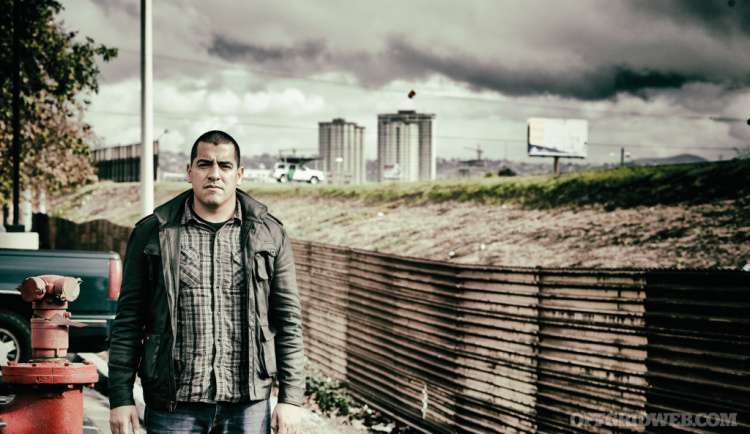
07:22 What should scare the American public?
Daniel flips the question: “Based on everything you know… what should WE be scared about?”
Ed feels that American public scrutiny immensely neglects the sheer amount of Chinese government influence with Mexican drug cartels, and how their activities are increasingly becoming a threat to national security. He cites that the Chinese have a direct hand in fentanyl supply to cartels, a strong influence in major American industries. He further adds that this is occurring with full knowledge of the Communist Party in China.
The Jalisco New Generation Cartel (Cártel de Jalisco Nueva Generación or CJNG) actually managed to grow in size and in influence during the COVID epidemic when all other organizations and institutions halted, due to being able to receive fentanyl shipments. They were able to do so because they had supreme control of the ports that faced the Pacific Ocean. Meanwhile, the Sinaloa Cartel has been smuggling fentanyl from the US, processing this into their product, then smuggling it to be sold into the US. In essence, there has been an ongoing drug proxy war across the US and Mexico.
Ed further emphasizes the sheer amount of influence the Chinese government and their companies have within US media and industry. Disney/Marvel and many entertainment conglomerates are basically barred from openly criticizing China. NBA players receive consequences for speaking out about China. Trade relations suffer if companies recognize Taiwan as a country. Daniel makes the same observation, adding that in his experience briefly being part of the film industry, he has noticed movie studios will continually push out sequels to old franchises because it simply caters to the one Chinese market. While perhaps only a few care about a repetitive franchise, this caters to billions in China. Ed concludes that “We are losing the culture war.”
11:45 China’s Actions and the Worsening State in the Mexican Drug War
Ed delves deeper into the issue of China’s actions in the Mexican drug war, specifically how they supply and finance cartels. Criminal enterprises have, in fact, used Chinese banking apps to launder this money. Profits made in the US can be transferred using the apps, then an overseas Chinese fixer sends the funds into their country’s banking apparatus. Later, the funds get sent to Mexico. Legally speaking, the US cannot do anything about it—further cementing that they are losing the economic war.
As a result, there are effectively two major cartel superpowers fighting for power in Mexico: the Sinaloa and the CJNG. Their capabilities and spheres of influence are staggering. Very recently the Sinaloa Cartel essentially defeated the Mexican military, with the ability to put up no-fly zones across the country. The largest lithium deposits in the world are found in northern Mexico, and they have become highly sought after by the cartels. A couple of years ago, headlines hit that Mexican-American Mormons were massacred by cartel enforcers, it was at this very location where the murders occurred. Ed also points out that a Canadian mining company that was operating in the lithium mines was later bought up by a Chinese company.
On the whole, the Chinese-Mexican cartel relations have already created noticeable shifts in the country. Strange rises of bogus pain medication and pills laced with fentanyl are hitting the Mexican pharmaceutical market. In addition, there is a large trend of Norinco firearms and drones from China in the hands of cartel soldiers. For those who have been monitoring the situation, the dynamics of the current drug war have been frightening.
17:46 Foreign Gun-Running in Mexico
Ed recalls personally finding countless foreign firearms in the stashed weapon caches of cartel members—recognizing a few from the now infamous Operation Fast and Furious. For those unaware, that operation was part of a “gun-walking” sting in which the ATF allowed firearms to be sold to illegal straw buyers in hopes of tracking the guns to Mexican criminal elements. In effect, it caused the deaths of many Mexican nationals as well as American federal agents, the most notable of which was US Border Patrol Agent Brian Terry.
Both Daniel and Ed agree that the operation was a disaster. Ed tells of an incident in which a law enforcement agent and his family were attacked while driving in Mexico. Sicarios ambushed the family and used FN Five-Seven pistols to murder the agent, his wife, and crippled the daughter. These very FN Five-Sevens were directly sold by US-based weapons dealers during Operation Fast and Furious.
“[Mexican federal agents] are the people that never get called or named, no cameras are ever placed on them, nobody’s telling their story… These are the guys fighting off people with AK47s and AR15s with a Colt M4 in semi auto that has two magazines to it and a soft second-chance body armor set up. You know? Cuz we were poor as ****, we were just [using] what we had.”
Ed explains that gun-running in Mexico today is no longer just coming from the US, but from all over the world. Countries in Africa, the Middle East, and South America have all had a part to play in smuggling firearms into the hands of cartel members. Ed asserts that Mexico has been the cradle of innovation since the inception of the drug war. Today, cartels are weaponizing civilian drones with explosive devices, using mobile mortar vans, and utilizing IEDs against law enforcement and military personnel.
Much of this creativity is the result of enduring poverty and lack of resources, making innovation a necessity. In addition, there is very little regulation being enforced in the majority of the country.
24:07 Should the US intervene in Mexico?
Daniel asks Ed what he anticipates will unfold in Mexico in the near future. Ed believes that within his lifetime, the US will force a military intervention as the drug war becomes more and more uncontrollable. And while this may be the most likely scenario, Ed does not necessarily believe it is the best course of action. Historically, the United States has had a terrible track record in producing positive outcomes from direct foreign intervention as made evident by the Vietnam War and the War on Terror in Iraq and Afghanistan.
Additionally, Ed raises the question for Americans, what would happen if, hypothetically, we were able to wholesale eliminate the flow of drugs between Mexico and the US? A healthcare crisis of monumental proportions would occur, one that would make the COVID epidemic pale in comparison. Ed also stresses that the cartel problem is not just a Mexican problem, it is actively a US problem. There are multiple cartel organizations that make a living within the US alone, with direct ties to our domestic drug trade. The drug war is multi-layered and interconnected, ensuring Mexico and the US must deal with the fallout of each other’s actions.
As far as what can be done immediately, Ed believes the US Border Patrol needs more personnel numbers and funding to directly combat the transfer of people and products across the border. Much controversy has surrounded former President Trump’s initiation of a border wall being built but according to experts like Ed, this will only barely slow down the cartel’s operations.
“There are ‘shock groups’… [They] are operational, 80 strong, even more sometimes… of just convoys of homemade armored vehicles, full auto rifles, 50 Cals, dudes kitted up head to toe with Wi-Fi cell phone disruptors… That is not happening across the ocean… that is happening a five minute walk from the border in places like Mexicali.”
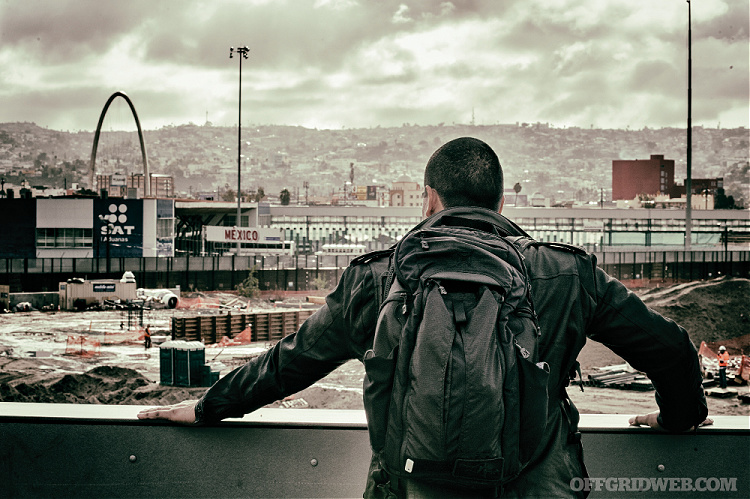
33:06 Are Islamic extremists coming over the border with cartel assistance?
Daniel dives deeper into the smuggling operations done by Mexican cartels, specifically if they have been playing an active part in transporting Islamic extremists into the US. Ed explains this has been occurring more recently due to the fact these extremists are able to simply hide in the mass of bodies being smuggled across the border within caravans. Traditionally, cartels have not and do not want to be associated with Islamic extremists due to the fact that it would bring much unwanted attention to themselves. However, the dynamic is changing. As a new younger generation of Mexicans takes up leadership roles within cartel groups, they do not share the same level of restraint as their predecessors.
35:11 Should Mexican drug cartels be labeled as terrorists?
Ed speaks about the concern and the repercussions of labeling cartels as terrorists. Even during the height of the Trump administration, they stayed clear from taking such action as it would have severe consequences of its own in relation to immigration.
But ultimately do they meet the definition of a terrorist organization?
Their actions would seem to meet that label. Cartels have Instagram live-streamed themselves executing political candidates of rival cartel organizations. The president of Mexico has shaken hands with El Chapo’s lawyer and even made a personal effort to visit the hometown of El Chapo in order to greet his mother. The cartels can even be considered as a transnational organization. Sinaloa Cartel members have been arrested in Australia, Indonesia, and some countries in Africa. Ed believes cartels to be more transnational than Al-Qaeda.
Cartels have also exhibited cult-like behavior. Some groups practice cannibalism as a show of strength, intimidation, and as part of their initiation process. They will film themselves eating still-beating hearts and post these videos online to spread fear. Certain leaders of cartels are considered to be holy deities and raise young men to believe as such. Much of what the American public commonly associates with Islamic terrorist organizations can also be widely attributed to Mexican drug cartels today.
It is apparent to both Daniel and Ed that the Chinese Communist Party’s involvement in the Mexican drug trade is very purposeful and done with full support. Some individuals believe the trade and financial support coming out of China is being conducted by rogue actors but according to Ed, nothing comes in or out of China without the CCP’s full knowledge. In some ways, China could be acting as a state sponsor for terrorist organizations.
As for the reason why the US does not recognize cartels as terrorists, it is simple: it would be an immigration nightmare. If there was an official designation of terrorist actors in Mexico, that would mean Mexicans could claim refugee status, fleeing from a terrorist organization into the US. The immigration problem is already immense. The last thing the US government wants is to exacerbate the issue.
45:04 Current State of Mexico’s Government and Law Enforcement
While Ed has been a strong advocate for increased funding and resources directed towards combating the drug cartels, more often than not, those are misappropriated. For years, the US has poured taxpayer dollars to fund and equip Mexican law enforcement agents, from 5.11 tactical clothing to H&K firearms. Unfortunately, hardly anything has changed. This sort of passive support is clearly not enough to turn the tide. The US government typically bets on having a strong military leadership in Mexico. However, absolutely no one in the government is safe from cartel influence. Mexican Marine Special Operations forces have recently been bribed into becoming bodyguards for drug lords and commanders have been seen staying in lavish houses owned by cartels.
Federal agents in Mexico are often offered bribes by criminal elements. Ed warns that the second anyone says yes to an offer, they are owned by the cartels. It becomes a trap and blackmail becomes the easiest tactic to force agents into their pocket. So prevalent is the corruption of law enforcement in Mexico that the second Ed tells anyone of his background, more often than not people automatically assume he was one of those corrupt agents. The few good men working within Mexico’s law enforcement system are almost never recognized for their efforts outside of American entertainment media and some major headlines.
“Mexico is a conquered nation. It’s a colony. It was a Mexican Empire and then it turned into a Catholic Empire. It’s gone through a bunch of changes as far identity goes. But the things that remain are memories of its violent past and very violent present. [Also] cultural elements of people being for themselves and not for each other… [This is due to] desperation and poverty. Mexico is a rich *** country, it’s just the distribution part of it is not [good].”
53:39 Parallels in the US
Ed and Daniel observe that Mexico’s current issue with the distrust of law enforcement has also been developing wildly within the US in the past few years alone. Daniel’s concern is that this distrust and propaganda will inadvertently turn away the good cops that stand for protecting individual rights, to be replaced by those who only follow orders no matter how unconstitutional the law may be.
Daniel believes this is a coordinated attempt to end self-reliance and make the population less able to defend themselves. Ed points out with the growing anti-cop sentiment; recruitment numbers are down. Some areas in the US do not even have a real police presence anymore. “Who wants to grow up and be a cop anymore?”, Ed asks.
Ed believes the attempt to take away individual freedoms such as firearm ownership is not something as one-dimensional as agents barging into your door and taking away your guns. It’s rather an attack on the entire concept of gun ownership, or a culture war against guns. The laws that are being pushed involve restricting not the act of owning a gun but the conditions that surround your ability to use them, such as caliber, magazine capacity, and areas of use restrictions for a firearm. The overall strategy is to make it so difficult to even own a firearm, the owners will be rendered incapable of using them effectively. It is a gradual process.
01:01:00 Firearm Ownership in Mexico
In stark contrast to the US, Ed discusses the severe firearms ownership laws in Mexico. Despite having a clear stance on allowing firearm ownership for self-defense in the constitution, the Mexican government today has a single blanket gun law in place that wholesale restricts how any legal citizen can acquire and trade a firearm. The legislation basically monopolized the legal trade and manufacturing of firearms to the military. At one point the Mexican people actually gave up the vast majority of their guns, willingly, to the government through gun drives and buyback programs. Since then, the act of purchasing a gun is a ridiculously arduous process.
“There is a single firearm store in Mexico. [It is] in Mexico City. So if you wanna buy a gun in Mexico, you have to be able to purchase a plane ticket to and from Mexico City from wherever you’re from, go there and buy this overpriced gun…
“Just imagine the most funny, piece of **** gun out there… that you wouldn’t want even as a toy…. [then] you do a bunch of paperwork for it and then you fly back home and store it in your house. And you can’t practice with it unless you’re part of a shooting club and that’s an expensive thing to be a part of.
“So basically, if you’re not upper-middle class, having a gun is not an option for you… The military can shoot a minigun into a city to try and take down a cartel [member] but you can’t own a 22 caliber revolver.”
In addition to all of these restrictions, the Mexican government is currently asking community defenders fighting off cartel members to disarm themselves, despite the immense danger they face. Within central Mexico, government forces are attempting to push into deep cartel territory and “clean up” the area. However, one must consider that much of how the cartels were even allowed to be as prevalent as they are is due to the government’s local offices being part of the problem. Simply put, on both a practical and legal level, all the cards are stacked against the average citizen in Mexico seeking to defend themselves.

It is because of these experiences that Ed Calderon is a strong 2nd amendment supporter. He wishes he could find the most staunch anti-gun liberal in the US, drive them 30 hours into Mexico to a marginalized community that has been assaulted by both the corrupt police and the cartel, and have them ask these people if they would like to be armed. “In a heartbeat,” Ed says, “All of them would say yes.” Daniel further adds that every single instance of major gun control legislation being passed has directly had a hand to play in mass murders and oppression, no matter the setting.
01:12:09 Sex Trade and Human Trafficking
Daniel asks Ed about his knowledge regarding the sex trade and human trafficking operations within Mexico. To no one’s surprise, Ed paints a dark picture of the grim realities that await young Mexican women as they attempt to cross the border. It is not uncommon for girls as young as 12 or 13 years of age to disappear. Women in their travels through the country are often raped and taken advantage of. Those who are deemed attractive enough are recruited into sex work in brothels.
This is further worsened by the fact Mexico on the whole has a terrible record of actually solving crimes, especially murders. According to Ed, 96% of all murders in Mexico go unsolved. So for serial killers, it’s is an ideal place to prey on the innocent. For example, only recently had authorities caught a man who had 40 bodies buried in his backyard in Mexico City—and he was only found out due to his own mistake.
Slavery is often thought of in the past tense, especially in America. Ed asserts that slavery is happening right now with migrant Mexican workers who have been reduced to becoming indentured servants. And it is not as uncommon as one might believe. The governor of California, Gavin Newsom, had workers who were paying of their debts working his winery during the height of the COVID epidemic.
“People need to kind of pay attention… to things that are happening right under our noses and stop thinking of it… as a ‘Mexico problem’… It’s a problem that is in your backyard now.”
01:18:50 What can we do? How can we pay more attention?
Speaking on behalf of the listeners, Daniel asks Ed how can Americans pay more attention occurring with the Mexican drug trade and what can we do to help. Ed encourages listeners to firstly keep up with the news and current events in Mexico much as they would here in the US. Secondly, he recommends that Americans contact their representatives and ask them to monitor and audit what taxpayer dollars are being used for in the drug war down south. American citizens should focus their attention and question their government officials on why millions of dollars have been spent on the drug war for no real difference to occur. Accountability must be enforced.
To sum it up, Ed states, “Last year was the most lethal year to be a Mexican in our history. Why aren’t Americans screaming for accountability from the government?” The situation is, again, extremely dire. There are over 82,000 missing people in Mexico with active practices of slavery and countless dead.
“Americans need to call what’s going on in Mexico what it is: it’s a Narco insurgency where the government is not to be trusted. [There are] multiple sides to it and there are foreign actors working within Mexico against US interests. That’s what that giant wasp’s nest of a country is and it’s right across your border. It’s not gonna be like pulling into Iraq, it’s not gonna be like Afghanistan. It’s gonna be its own thing.”
For a true military intervention to be truly done, the US must take into consideration the horrific economic effects this would take on the country as Mexico is one of the US’ largest trading partners as well as preparing for a guerrilla war, unlike anything they’ve ever seen. Ed says people ask him what the solution is, but it’s very complex. It should be a priority, just from the aspect of regional stability.
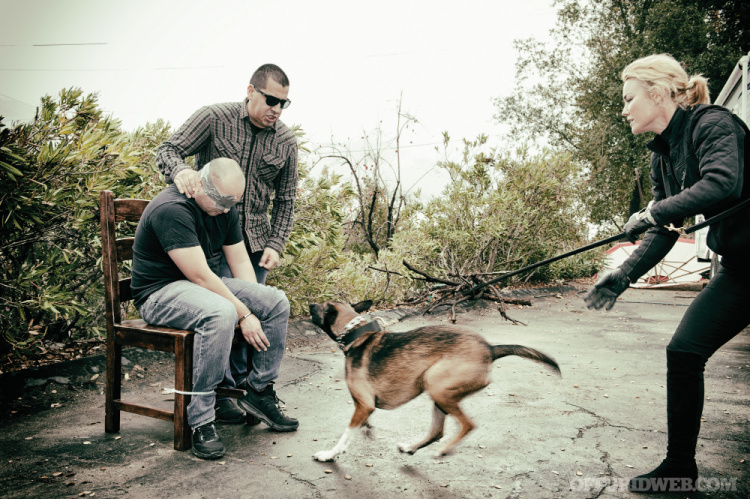
1:24:03 Priorities
Ed says Islamic terrorism is a threat but it’s not the biggest threat to the US right now. The regional de-civilization of the country right next to the US that is also the biggest trading partner should be big on the list of priorities. Islamic extremism is something to worry about, of course, but Ed says there are things eating away at American society, like Fentanyl-laced heroin, that are actually more of a threat than somebody trying to commit a terrorist act on US soil.
Daniel says he holds few things in higher esteem than the US flag. In fact, the only thing he holds in higher esteem is what the flag represents: individual liberty, freedom, independence.
He goes on to say that right now, our priorities are out of order. For instance, millions are dying of heart disease and obesity. But people are pushing body positivity instead of getting healthy. Or COVID—you’re going to die of heart disease before Covid gets you. Or even the push to ‘save the kids’ by getting rid of guns….there are a bazillion things that should be of higher priority than these things that are happening because there are a lot of things taking more people off the planet unjustly because of mistakes that we’ve made as a society.
Daniel points out misplaced priorities in the 2nd Amendment crowd too. He says he despises the idea of federal firearms reciprocity. He’s not a fan of the federal government having power. If they’re not doing something to protect the people, they shouldn’t be doing it.
1:30:33 Victims
There is an epidemic of professional victims causing a tremendous amount of problems and murdering common sense.
Ed says, “If you have a victim mentality, you have the privilege of saying that police should be the only ones with guns.”
Not everybody gets that. Ed discusses how many people think he is in the US because of the wrong things the US has done to Mexico. And, yes. The US has had some pretty bad foreign policy with Mexico. But also, Ed can walk around in places in the US and not get picked up by a van with a bunch of dudes carrying AK47s. Mexico has not been innocent about it’s own situation.
So people can go into the victim mindset, saying everybody’s at fault for what we don’t have, but what good does that do?
Or, we can spend that same energy trying to get things to work out better. Ed asks people, “What have you done for your community in the last five days?”
Ed also points out that people question why so many cops in Mexico switch sides to work for the cartels. It’s because there’s no support from the government or from the people. He says that he is earning his way in this country. Daniel follows up by saying even though he isn’t earning his way into the country in the same way, he believes we need to continue to earn what this country can be for our kids and grandkids. If we look at the news reports, it seems like we are failing. But, Daniel still believes in the quiet majority—the good guys who are censored at every turn. And, the longer the good guys are censored, the more impressionable young people are permanently swayed to the other side.
1:36:56 What about changes in immigration policy?
Ed points out that people who applaud change in immigration policy, (as far as border enforcement), are also applauding the fact that the cartels that control that border are making Bank. They’re applauding the fact that children disappear across the border. They’re applauding that children are tossed over the border, breaking their legs on the way down. Slavery. Indentured servitude. Rape. Murder.
Ed went through the immigration process. It wasn’t easy. It took a while. It was hard and stressful, and he says it isn’t fair for someone to circumvent the process — to have the benefit of being in the United States. He says that a lot of Americans need to understand that most Mexicans are conservative. They’ve just been through a period of being labeled as the ‘bad guys’.
Daniel says that he saw the same thing with the Cubans in Miami. He says, “They’ve seen the other side. They don’t want to go back.
Ed points out that some people like to say how beautiful Mexico is. And, of course it’s nice there! —Inside the fences and the gates with the armed security. He says, “Come with me to some of the places I’ve been to, where the people don’t move aside if you point a rifle at them, because they see them every day. Come to a place like that with me, and we’ll talk about reality. I wasn’t a tourist agent. I was a police agent. My main point of my activism is to bring light and voice to those people that don’t have them.”
1:39:20 Daniel says that he’s glad Ed is here and he really appreciates his service to this country.
Ed brings up that he’s done classes for border control. He’s seen the levels of humanity like guys just buying toothbrushes for the kids out of their own pocket. He’s also seen the bad side, he acknowledges that it’s not all good. But he encourages people to not generalize. The quiet people in that field should be a bit more loud. He gets to have conversations with people around the country in law enforcement and the military and he knows that they have a level of humanity that is completely color blind as far as what they are doing.
He points out that if it’s rare for people in the US to go into service, in places like Mexico, people like Ed who go into the service are like lepers. They get incredulous questions like, “Where are you going to work?” “How much are you going to earn?” “What are the risks?” He says that for the time he was in, it was rated the most dangerous job on the planet. And he didn’t get rich off it. All he got was a few concussions, a broken nose several times over, a few missing parts…and as Daniel points out, probably some serious mental trauma. Ed adds that he’s also got a few stories about donkey shows.
And he’s still out there. He isn’t working for the government anymore, but he’s working on the business side of it and a big part of what he does is activism. Through his platform, he takes up small causes and gives them a voice to expose some of the things that people don’t want to talk about.
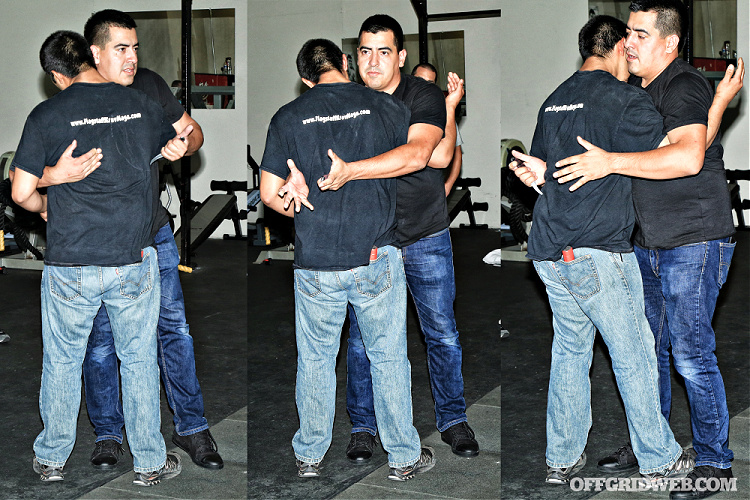
1:41:43 Where can you learn more about what Ed is up to, the causes he is after, and see how they can help and possibly train with him?
Find him at his website: Ed’s Manifesto. The site has a schedule, a blog, and a link to support very at-need agents that are working in Mexico, and some of the orphans that were left behind. For financial accountability, Ed documents every cent of donations and takes the money to the recipients personally. Ed also is raising money for the Sniper Foundation—he’s not one-sided in this. He is for this country, but he also looks back to the country that he came from. He’s trying to do things on both sides of the border.
Podcast: Play in new window | Download


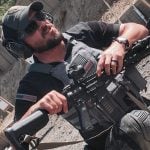
Pingback: Weekend Knowledge Dump- August 20, 2021 | Active Response Training()